Editor’s note: The following is extracted from David: Five Sermons, by Charles Kingsley (published 1865).
Psalm lxxviii. 71, 72, 73. He chose David his servant, and took him away from the sheep-folds. As he was following the ewes great with young ones, he took him; that he might feed Jacob his people, and Israel his inheritance. So he fed them with a faithful and true heart, and ruled them prudently with all his power.
I am about to preach to you four sermons on the character of David. His history, I take for granted, you all know.
I look on David as an all but ideal king, educated for his office by an all but ideal training. A shepherd first; a life—be it remembered—full of danger in those times and lands; then captain of a band of outlaws; and lastly a king, gradually and with difficulty fighting his way to a secure throne.
This was his course. But the most important stage of it was probably the first. Among the dumb animals he learnt experience which he afterwards put into practice among human beings. The shepherd of the sheep became the shepherd of men. He who had slain the lion and the bear became the champion of his native land. He who followed the ewes great with young, fed God’s oppressed and weary people with a faithful and true heart, till he raised them into a great and strong nation. So both sides of the true kingly character, the masculine and the feminine, are brought out in David. For the greedy and tyrannous, he has indignant defiance: for the weak and helpless, patient tenderness.
My motives for choosing this subject I will explain in a very few words.
We have heard much of late about ‘Muscular Christianity.’ A clever expression, spoken in jest by I know not whom, has been bandied about the world, and supposed by many to represent some new ideal of the Christian character.
For myself, I do not understand what it means. It may mean one of two things. If it mean the first, it is a term somewhat unnecessary, if not somewhat irreverent. If it mean the second, it means something untrue and immoral.
Its first and better meaning may be simply a healthy and manful Christianity, one which does not exalt the feminine virtues to the exclusion of the masculine.
That certain forms of Christianity have committed this last fault cannot be doubted. The tendency of Christianity, during the patristic and the Middle Ages, was certainly in that direction. Christians were persecuted and defenceless, and they betook themselves to the only virtues which they had the opportunity of practising—gentleness, patience, resignation, self-sacrifice, and self-devotion—all that is loveliest in the ideal female character. And God forbid that that side of the Christian life should ever be undervalued. It has its own beauty, its own strength too made perfect in weakness; in prison, in torture, at the fiery stake, on the lonely sick-bed, in long years of self-devotion and resignation, and in a thousand womanly sacrifices unknown to man, but written for ever in God’s book of life.
But as time went on, and the monastic life, which, whether practised by man or by woman, is essentially a feminine life, became more and more exclusively the religious ideal, grave defects began to appear in what was really too narrow a conception of the human character.
The monks of the Middle Ages, in aiming exclusively at the virtues of women, generally copied little but their vices. Their unnatural attempt to be wiser than God, and to unsex themselves, had done little but disease their mind and heart. They resorted more and more to those arts which are the weapons of crafty, ambitious, and unprincipled women. They were too apt to be cunning, false, intriguing. They were personally cowardly, as their own chronicles declare; querulous, passionate, prone to unmanly tears; prone, as their writings abundantly testify, to scold, to use the most virulent language against all who differed from them; they were, at times, fearfully cruel, as evil women will be; cruel with that worst cruelty which springs from cowardice. If I seem to have drawn a harsh picture of them, I can only answer that their own documents justify abundantly all that I have said.
Gradually, to supply their defects, another ideal arose. The warriors of the Middle Ages hoped that they might be able to serve God in the world, even in the battle-field. At least, the world and the battle-field they would not relinquish, but make the best of them. And among them arose a new and a very fair ideal of manhood: that of the ‘gentle, very perfect knight,’ loyal to his king and to his God, bound to defend the weak, succour the oppressed, and put down the wrong-doer; with his lady, or bread-giver, dealing forth bounteously the goods of this life to all who needed; occupied in the seven works of mercy, yet living in the world, and in the perfect enjoyment of wedded and family life. This was the ideal. Of course sinful human nature fell short of it, and defaced it by absurdities; but I do not hesitate to say that it was a higher ideal of Christian excellence than had appeared since the time of the Apostles, putting aside the quite exceptional ideal of the blessed martyrs.
A higher ideal, I say, was chivalry, with all its shortcomings. And for this reason: that it asserted the possibility of consecrating the whole manhood, and not merely a few faculties thereof, to God; and it thus contained the first germ of that Protestantism which conquered at the Reformation.
Then was asserted, once for all, on the grounds of nature and reason, as well as of Holy Scripture, the absolute sanctity of family and national life, and the correlative idea, namely, the consecration of the whole of human nature to the service of God, in that station to which God had called each man. Then the Old Testament, with the honour which it puts upon family and national life, became precious to man, as it had never been before; and such a history as David’s became, not as it was with the mediæval monks, a mere repertory of fanciful metaphors and allegories, but the solemn example, for good and for evil, of a man of like passions and like duties with the men of the modern world.
These great truths, once asserted, could not but conquer; and they will conquer to the end. All attempts to restore the monastic and feminine ideal, like that of good Nicholas Ferrar at Little Gidding, failed. They withered like hot-house exotics in the free, keen, bracing English air; and in our civil wars, Cavalier and Puritan, in whatever they differed, never differed in their sound and healthy conviction that true religion did not crush, but strengthened and consecrated a valiant and noble manhood.
Now if all that ‘Muscular Christianity’ means is that, then the expression is altogether unnecessary; for we have had the thing for three centuries—and defective likewise, for it is not a merely muscular, but a human Christianity which the Bible taught our forefathers, and which our forefathers have handed down to us.
But there is another meaning sometimes attached to this flippant expression, ‘Muscular Christianity,’ which is utterly immoral and intolerable. There are those who say, and there have been of late those who have written books to shew, that provided a young man is sufficiently brave, frank, and gallant, he is more or less absolved from the common duties of morality and self-restraint.
That physical prowess is a substitute for virtue is certainly no new doctrine. It is the doctrine of every red man on the American prairies, of every African chief who ornaments his hut with human skulls. It was the doctrine of our heathen forefathers, when they came hither slaying, plundering, burning, tossing babes on their spear-points. But I am sorry that it should be the doctrine of any one calling himself a gentleman, much more a Christian.
It is certainly not the doctrine of the Catechism, which bids us renounce the flesh, and live by the help of God’s Spirit a new life of duty to God and to our neighbour.
It is certainly not the doctrine of the New Testament. Whatsoever St. Paul meant by bidding his disciples crucify the flesh, with its affections and lusts, he did not mean thereby that they were to deify the flesh, as the heathen round them did in their profligate mysteries and in their gladiatorial exhibitions.
Neither, though the Old Testament may seem to put more value on physical prowess than does the New Testament, is it the doctrine of the Old Testament, as I purpose to show you from the life and history of David.
Nothing, nothing, can be a substitute for purity and virtue. Man will always try to find substitutes for it. He will try to find a substitute in superstition, in forms and ceremonies, in voluntary humility and worship of angels, in using vain repetitions, and fancying that he will be heard for his much speaking; he will try to find a substitute in intellect, and the worship of intellect, and art, and poetry; or he will try to find it, as in the present case, in the worship of his own animal powers, which God meant to be his servants and not his masters. But let no man lay that flattering unction to his soul. The first and the last business of every human being, whatever his station, party, creed, capacities, tastes, duties, is morality: Virtue, Virtue, always Virtue. Nothing that man will ever invent will absolve him from the universal necessity of being good as God is good, righteous as God is righteous, and holy as God is holy.
Believe it, young men, believe it. Better would it be for any one of you to be the stupidest and the ugliest of mortals, to be the most diseased and abject of cripples, the most silly, nervous incapable personage who ever was a laughingstock for the boys upon the streets, if only you lived, according to your powers, the life of the Spirit of God; than to be as perfectly gifted, as exquisitely organised in body and mind as David himself, and not to live the life of the Spirit of God, the life of goodness, which is the only life fit for a human being wearing the human flesh and soul which Christ took upon him on earth, and wears for ever in heaven, a Man indeed in the midst of the throne of God.
And therefore it is, as you will yourselves have perceived already, that I have chosen to speak to you of David, his character, his history.
It is the character of a man perfectly gifted, exquisitely organised. He has personal beauty, daring, prowess, and skill in war; he has generosity, nobleness, faithfulness, chivalry as of a mediæval and Christian knight; he is a musician, poet, seemingly an architect likewise; he is, moreover, a born king; he has a marvellous and most successful power of attracting, disciplining, ruling his fellow-men. So thoroughly human a personage is he, that God speaks of him as the man after his own heart; that our blessed Lord condescends to call himself especially the Son of David.
For there is in this man (as there is said to be in all great geniuses) a feminine, as well as a masculine vein; a passionate tenderness; a keen sensibility; a vast capacity of sympathy, sadness, and suffering, which makes him truly the type of Christ, the Man of sorrows; which makes his Psalms to this day the text-book of the afflicted, of tens of thousands who have not a particle of his beauty, courage, genius; but yet can feel, in mean hovels and workhouse sick-beds, that the warrior-poet speaks to their human hearts, and for their human hearts, as none other can speak, save Christ himself, the Son of David and the Son of man.
A man, I say, of intense sensibilities; and therefore capable, as is but too notorious, of great crimes, as well as of great virtues.
And when I mention this last fact, I must ask you to pause, and consider with me very solemnly what it means.
We may pervert, or rather misstate the fact in more than one way, to our own hurt. We may say cynically, David had his good points and his bad ones, as all your great saints have. Look at them closely, and in spite of all their pretensions you will find them no better than their neighbours. And so we may comfort ourselves, in our own mediocrity and laziness, by denying the existence of all greatness and goodness.
Nathan the prophet said that David’s conduct would be open to this very interpretation, and would give great occasion to the enemies of the Lord to blaspheme. But I trust that none of you wish to be numbered among the enemies of the Lord.
Again, we may say, sentimentally, that these great weaknesses are on the whole the necessary concomitants of great strength; that such highly organised and complex characters must not be judged by the rule of common respectability; and that it is a more or less fine thing to be capable at once of great virtues and great vices.
Books which hint, and more than hint this, will suggest themselves to you at once. I only advise you not to listen to their teaching, as you will find it lead to very serious consequences, both in this life and in the life to come.
But if we do say this, or anything like this, we say it on our own responsibility. David’s biographers say nothing of the kind. David himself says nothing of the kind. He never represents himself as a compound of strength and weakness. He represents himself as weakness itself—as incapacity utter and complete. To overlook that startling fact is to overlook the very element which has made David’s Psalms the text-book for all human weaknesses, penitences, sorrows, struggles, aspirations, for nigh three thousand years.
But this subject is too large for me to speak of today; and too deep for me to attempt an explanation till I have turned your thoughts toward another object, which will explain to you David, and yourselves, and, it seems to me at times, every problem of humanity. Look not at David, but at David’s greater Son; and consider Christ upon his Cross. Consider him of whom it is written, ‘Thou art fairer than the children of men: full of grace are thy lips, because God hath blessed thee for ever. Gird thee with thy sword upon thy thigh, O thou most Mighty, according to thy worship and renown. Good luck have thou with thine honour; ride on, because of the word of truth, of meekness, and righteousness; and thy right hand shall teach thee terrible things. Thy arrows are very sharp, and the people shall be subdued unto thee, even in the midst among the King’s enemies.’ Consider him who alone fulfilled these words, who fulfils them even now eternally in heaven, King over all, God blessed for ever. And then sit down at the foot of his Cross: however young, strong, proud, gallant, gifted, ambitious you may be—sit down at the foot of Christ’s Cross, and look thereon, till you see what it means, and must mean for ever. See how he nailed to that Cross, not in empty metaphor but in literal fact, in agonising soul and body, all of human nature which the world admires—youth, grace, valour, power, eloquence, intellect: not because they were evil, for he possessed them doubtless himself as did none other of the sons of men—not, I say, because they were evil, but because they were worthless and as nothing beside that divine charity which would endure and conquer for ever, when all the noblest accidents of the body and the mind had perished, or seemed to perish. In the utmost weakness and shame of human flesh he would shew forth the strength and glory of the Divine Spirit; the strength and the glory of duty and obedience; of patience and forgiveness; of benevolence and self-sacrifice; the strength and glory of that burning love for human beings which could stoop from heaven to earth that it might seek and save that which was lost.
Yes. Look at Christ upon his Cross; the sight which melted the hearts of our fierce forefathers, and turned them from the worship of Thor and Odin to the worship of ‘The white Christ;’ and from the hope of a Valhalla of brute prowess, to the hope of a heaven of righteousness and love. Look at Christ upon his Cross, and see there, as they saw, the true prowess, the true valour, the true chivalry, the true glory, the true manhood, most human when most divine, which is self-sacrifice and love—as possible to the weakest, meanest, simplest, as to the strongest, most gallant, and most wise.
Look upon him, and learn from him, and take his yoke upon you, for he is meek and lowly of heart, and you shall find rest unto your souls; and in you shall be fulfilled the prophecy of Jeremiah, which he spake, saying, ‘Let not the wise man glory in his wisdom, neither the mighty man glory in his might, neither let the rich man glory in his wealth: but let him that glorieth glory in this, that he understandeth and knoweth me, that I am the Lord, who exercises loving-kindness, judgment, and righteousness in the earth: for in these things I delight, saith the Lord.’
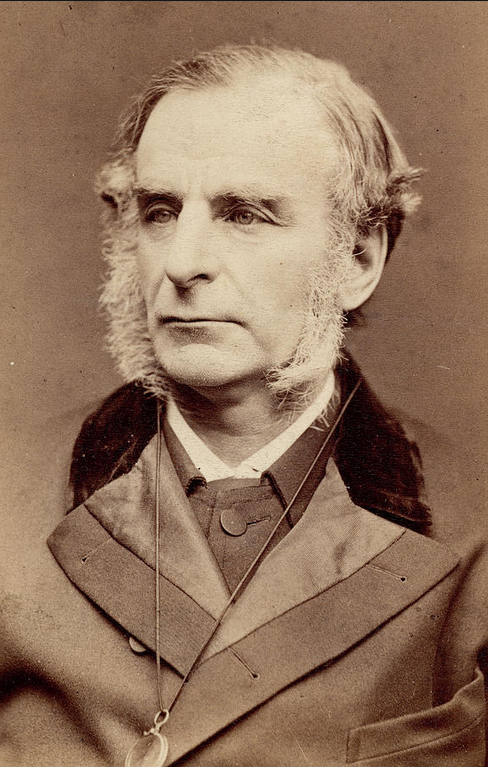

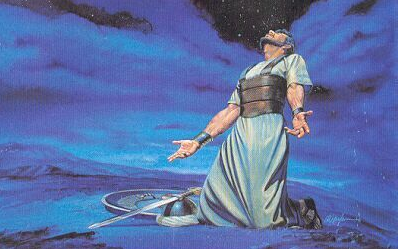


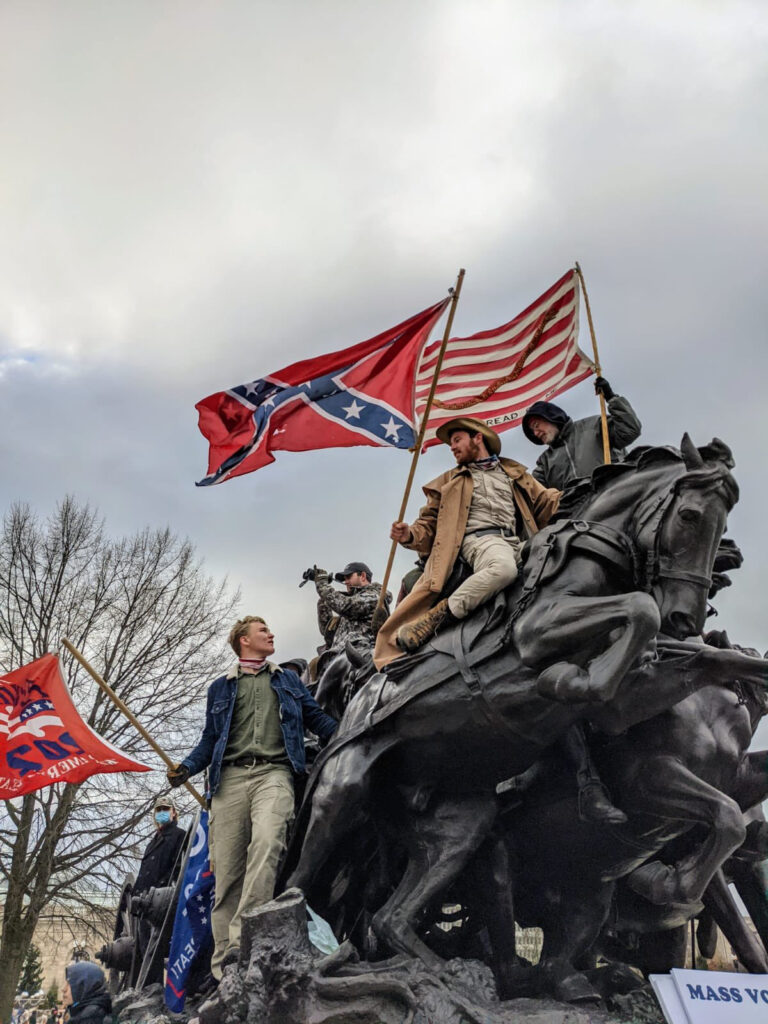

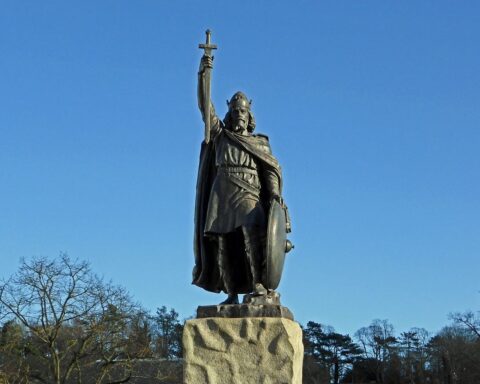
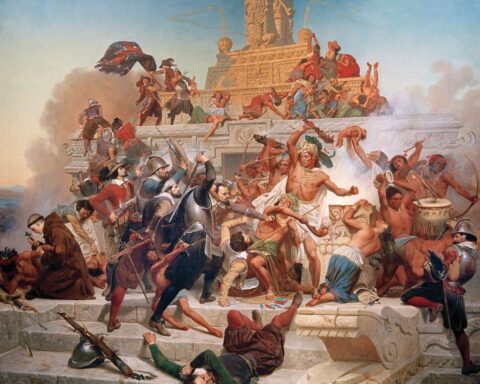
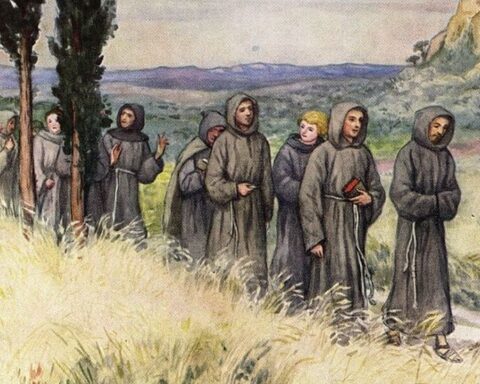
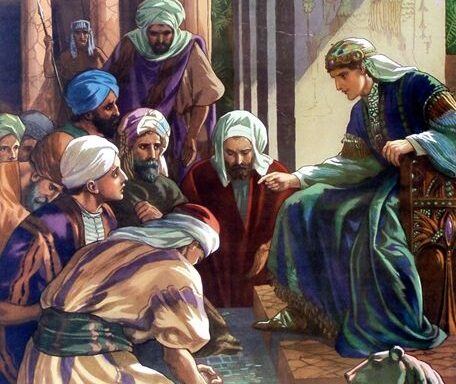
I would have to disagree on his assessment of Chivalry:
https://dalrock.wordpress.com/?s=Chivalry&submit=Search
It’s a corrupt ideal.
The least that can be said for chivalry is that it was a transition phase between Germanic barbarism and peak European civilization. That is no small thing. As F. Warre Cornish puts it:
“Chivalry was powerful both for good and for evil. So far as it was based on pride and contempt of inferiors, or condoned and regulated vice, it degraded ; so far as it upheld religion, honour and courtesy, it elevated society. It is altogether a mistake one to which recent historians have given countenance to dwell entirely on the former point of view, and to see in the fantastic ceremonialism of chivalry nothing but an empty pageant and a cloak for social immorality. The very ceremonialism was a protest against brutality and anarchy; and the science of love was not only a masquerade of virtue and vice adopting each other’s colours, but both in its origin and its aim tended to raise appetite into sentiment, and sentiment into purity. If the practice of chivalry was compatible with gross immorality, it was an advance on what had gone before, and no higher ideal of sexual relations has ever been put forward than that which the best of the knights professed and practised.”
https://www.menofthewest.net/chivalry-part-1-introduction/
We should expect Victorian writers, strongly and even excessively sentimental about women, to praise chivalry so much on that last point. It’s a false assessment, but one in accord with the spirit of the age.